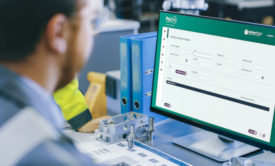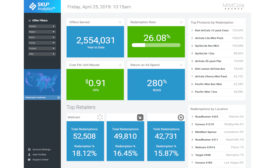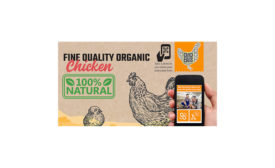Home » blockchain technology
Articles Tagged with ''blockchain technology''
How blockchain helps companies meet new labeling standards
Blockchain, in particular, is giving wary food and beverage companies something to be excited about.
June 4, 2019
JMU acquired Unicorn Investment
JMU is acquiring Unicorn to meet the emerging demands of blockchain technology-based transactions.
May 21, 2019
Plug and Play opens supply chain & logistics startup accelerator
The region will provide participants in the accelerator program access to a network of industry experts, including Fortune 500 companies, leading supply chain and logistics faculty from the University of Arkansas and business development opportunities.
May 15, 2019
Study predicts 90% of blockchain-based supply chain initiatives will suffer “blockchain fatigue” by 2023
The budding nature of blockchain makes it almost impossible for organizations to identify and target specific high-value use cases.
May 13, 2019
Study unveils Top 5 disrupters for the food, beverage industry
From new market entrants and go-to-market models, to technology advancements such as artificial intelligence, disruption comes in all forms.
May 10, 2019
Mexican State of Tamaulipas introduces blockchain initiative to digitize, automate processes for farmers
The GrainChain initiative will digitize and automate all of the manual processes and workflows used by farmers.
May 6, 2019
Study: 20% of top global grocers will use blockchain for food safety, traceability by 2025
Encryption capabilities on the food source, quality, transit temperature and freshness can be used to ensure that the data is accurate.
April 30, 2019
Elevate your expertise in refrigerated and frozen foods with unparalleled insights and connections.
Get the latest industry updates tailored your way.
JOIN TODAY!Copyright ©2024. All Rights Reserved BNP Media.
Design, CMS, Hosting & Web Development :: ePublishing






